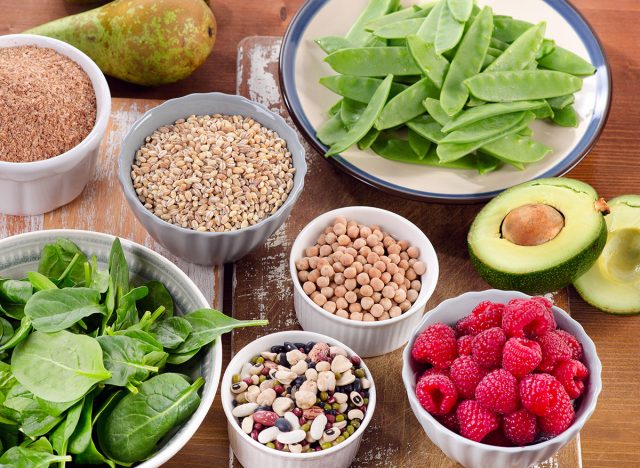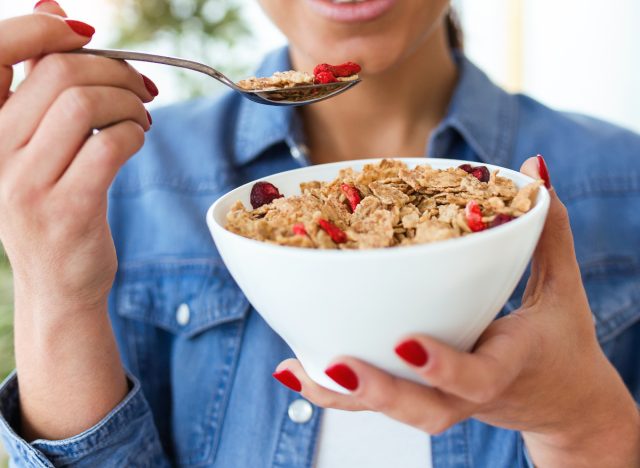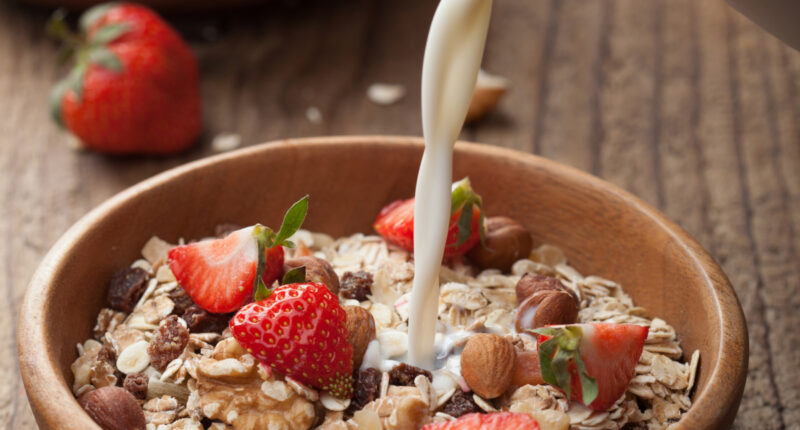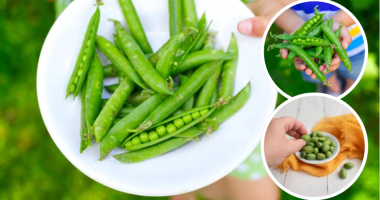Find out “Why Does Fiber Make You Poop?” Constipated? When things come to a halt in the bathroom, you’re probably used to reaching for fiber-rich foods and supplements—but have you ever wondered why fiber makes you poop?
If you’re feeling backed up while in the bathroom, a solid dose of fiber, a large glass of water, and a little bit of luck are frequently enough to get things moving again. Actually, a diet that’s high in fiber can keep constipation from happening in the first place. The Academy of Nutrition and Dietetics recommends men consume 38 grams of fiber per day and women consume 25 grams for good health.
However, if you have wondered why fiber helps you poop and helps regulate your BMs, there’s a fascinating science behind what this macronutrient does for your—well, behind. Read on for four reasons why fiber makes you poop and is ultimately the king of the porcelain throne. Also, for more healthy eating tips to help support hearty digestion and productive BMs, be sure to check out 16 Foods To Help You Poop Immediately.
1. Fiber increases the weight of your stool

If you’ve ever seen a doctor or healthcare professional about being backed up, they probably told you that you should “bulk up your stool.” Part of the reason for this advice is because, as fiber makes its journey through your gut, it gathers up some companions along the way. These include water and waste products, both of which add bulk to your poop, making it heavier—and therefore, easier to push out.
And while it may seem like all fiber is created equal, this carb actually comes in two forms: soluble and insoluble fiber. To relieve constipation, insoluble fiber may be the better way to go. Because it doesn’t dissolve in water, it’s better at accumulating more bulk in your gut, according to the Mayo Clinic. You can find insoluble fiber in whole wheat flour, green beans, berries, and potatoes.
2. Fiber is actually indigestible
Fun fact: Fiber is a carbohydrate, which is why you’ll see it listed (along with sugars) underneath the carbohydrates line item on the nutrition facts panel. But unlike other carbs, fiber is technically indigestible. Whereas the digestive tract breaks down most sugars and starches into glucose to provide energy, it can’t disassemble dietary fiber. For this reason, fiber passes through your body undigested, pulling water and wastes along with it.
3. It feeds healthy gut bacteria

When fiber arrives in your large intestine, your body isn’t quite done with it yet. Here, it serves as food for friendly gut bacteria, promoting a happy, healthy microbiome. Research shows that having “dysbiosis” (aka an unhealthy imbalance) of bacteria in the gut can contribute to chronic constipation. On the flip side, the right mix of bacteria can help alleviate a stopped-up system. So-called prebiotic fiber is the kind gut microbes especially love to feed upon. You’ll find prebiotic fiber in foods like beans, onions, garlic, spinach, and oats.
4. It softens your stool
We’ve all experienced the misery of straining to get things moving on the bowl. Fortunately, fiber can make for a smoother passage because it softens stool. For softer stools, opt for the soluble variety of fiber. When soluble fiber dissolves in water, it forms a gel-like paste that adds a softer consistency to your BMs. Not surprisingly, soluble fiber is frequently an ingredient in stool-softening laxatives. But of course, you can get plenty of it from food, too! Opt for oats, nuts, seeds, and broccoli, and see if you achieve bathroom success.
Continue to check our website for more articles of this kind. And, please use our comment section as well, we would love to hear from you.
Post source: eatthis







